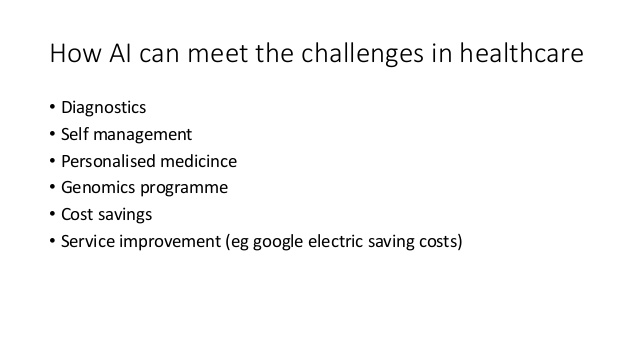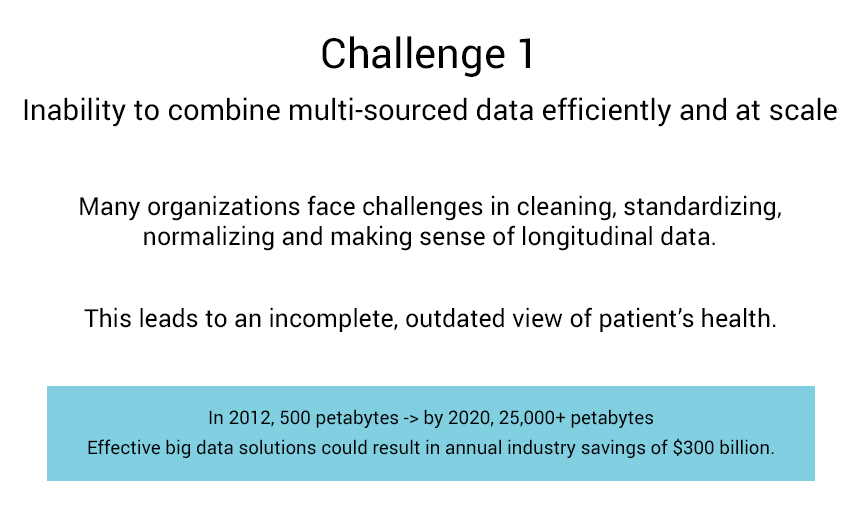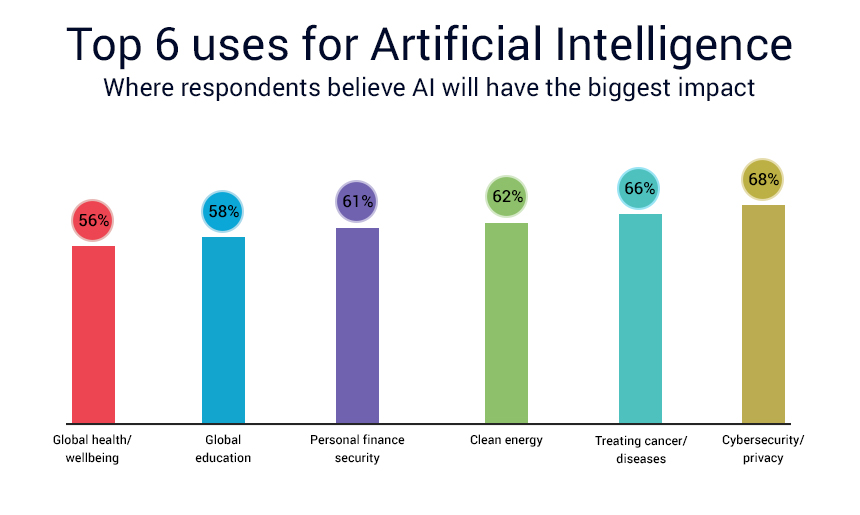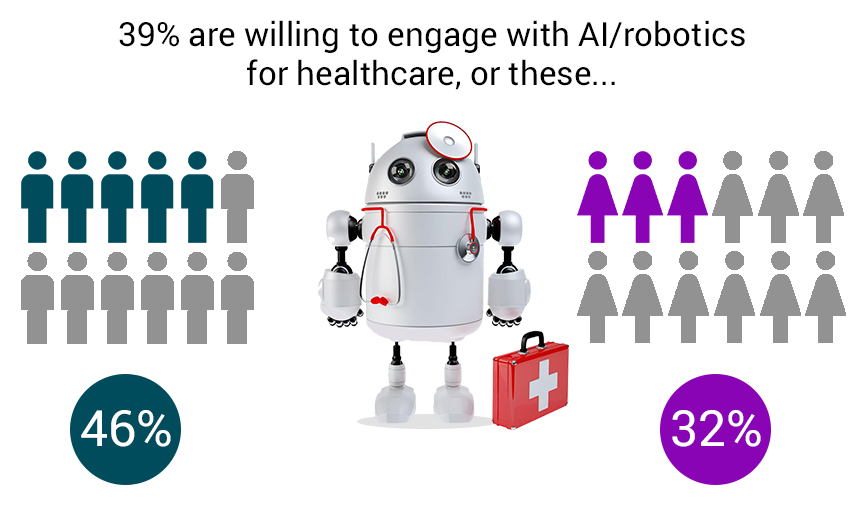The healthcare industry is evolving rapidly with the innovation of new technologies like Artificial Intelligence, which is helping in improving the efficiency, to enhance the patient's experience and also invent cost-saving procedures. But this pretty exciting field also has its challenges and opportunities which should be considered before making a huge investment.

The various opportunities created by AI-driven healthcare are:
Operational:
AI has the capability to administer and also operate a hospital or a healthcare system. This means with the help of AI we can make sure that before an operation, it ensures that the surgical room is properly stocked and equipped with the needful instruments based on what surgeries are going to be performed in that room. Additionally, algorithms can be written to assess what the surgeon needs so that the robot can pick up or deliver the required supplies which are needed for the operation. Another feature can be an algorithm which will help in calculating the cost of the supplies taken from multiple vendors and then ultimately analyze which vendor provides the supplies at low cost and hence in future will promptly order from the same place.
Data security:
With the evolution of technology and the fact that it generates a massive amount of data every day, healthcare needs to keep a proper track of the clinical data. Many mishaps happen when someone deliberately tampers with the data that is in the system which can be avoided if it is controlled by the AI-driven healthcare. And with the help of AI, one can even find out if someone within the system accessed any data inappropriately. Healthcare needs to prioritize which technology suits best to their needs to help simplify their complex workflow.
Clinical care delivery:
AI is already evolving in this field by presenting clinical decision support to the physicians. It is very difficult for a specialist to keep track of all the ongoing research being done, loads of data generated. But here the AI system can scan the largest data and then combine the research to the patient's medical information and then provide the physician with the required care for the patient. It kind of gives a personalized experience to the patients. Many companies are offering this due to the wide variety of clinical indications, it kind of goes through a decision tree to evaluate the optimum care for the patient. And currently, we have moved past the phase where we need a human to diagnose the disease properly. Which is why in the near future it is very much possible that we will see that AI will be doing inpatient diagnosis which will involve recognizing the medical history. Identification of the diseases can be done at their early stages be it be in cancer or an autoimmune disease. This is where AI can make a huge impact and facilitate the process more efficient.
The Challenges

The challenges that will be faced by AI-driven healthcare is the industry might limit the potential of the AI technology. The main thing is that if the information provided from AI be implemented and utilized in the best way. If we look at it from a clinical perspective, then the challenge experienced is that the physicians will no longer be responsible for delivering the care to the patients. They face the situation where the patient has the acquired knowledge about the condition more than the specialist in front of him. And soon it will the AI who will be possessing much more knowledge and information than the specialists. However, in the end, the doctor will be the one who will access the information that is provided so as to deliver the appropriate care, and it can differ from what the AI technology suggests.
When looked at the challenge from diagnosis perspective then we can see that the physicians are already facing the problem as to whether to provide the care at the early diagnosis of a disease and sometimes there are instances when the tissue is actually not affected by the disease yet and thus the care might go wrong in that place. The biggest problem is that whether something is done or not. Research has provided a conclusion that sometimes the human body should be left alone to heal itself rather than enforcing any medical intervention. This becomes a critical issue when AI detects the early symptoms of a dreadful disease in its early stages. Which is where we need a human to provide an insight rather than the AI technology.

As artificial intelligence continues to grow in its path, there is no doubt that we will see the brighter future to improve businesses and to streamline the efficiency in the healthcare industry. AI can totally change the way we communicate with the physicians and get a personalized journey through our medical treatment. It is necessary to access the potential advancements and challenges that will arrive with its introduction.





Leave your comment
Your Comment:
Note: HTML is not translated!